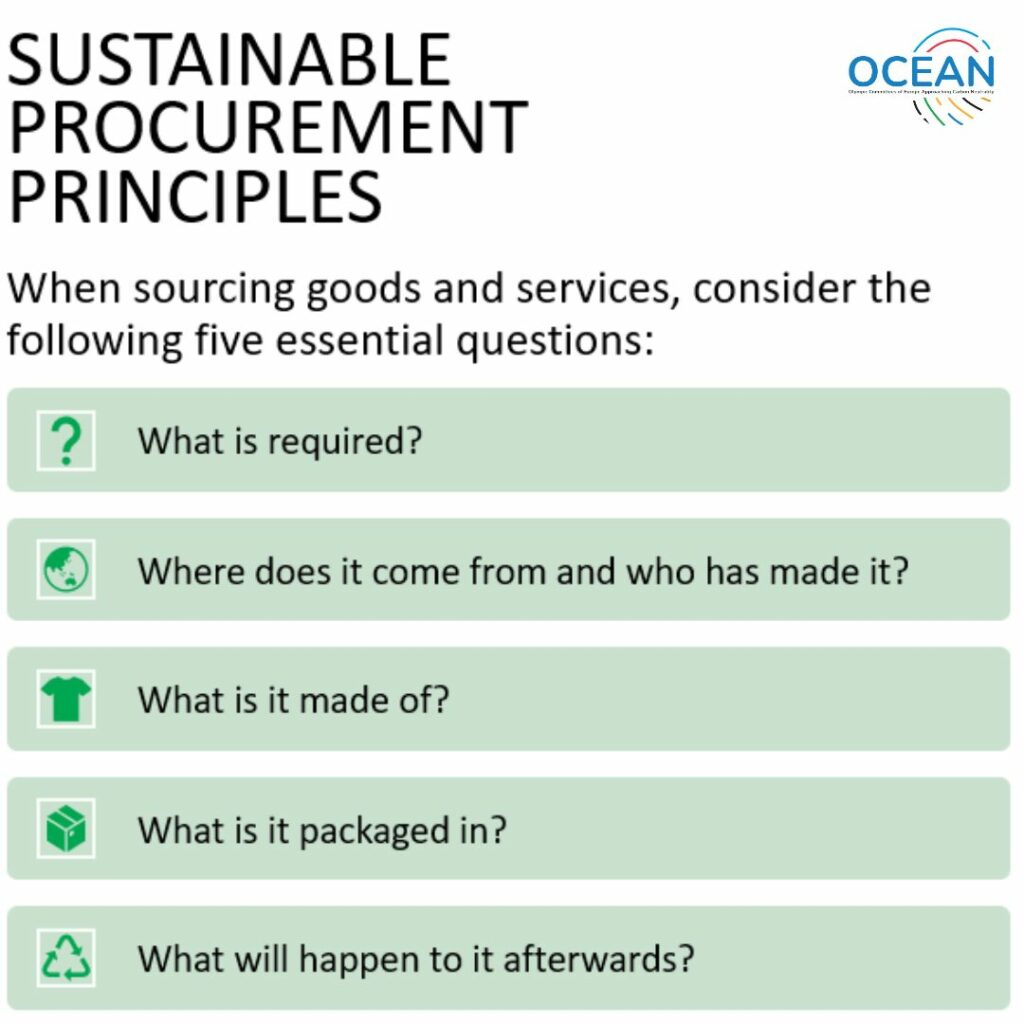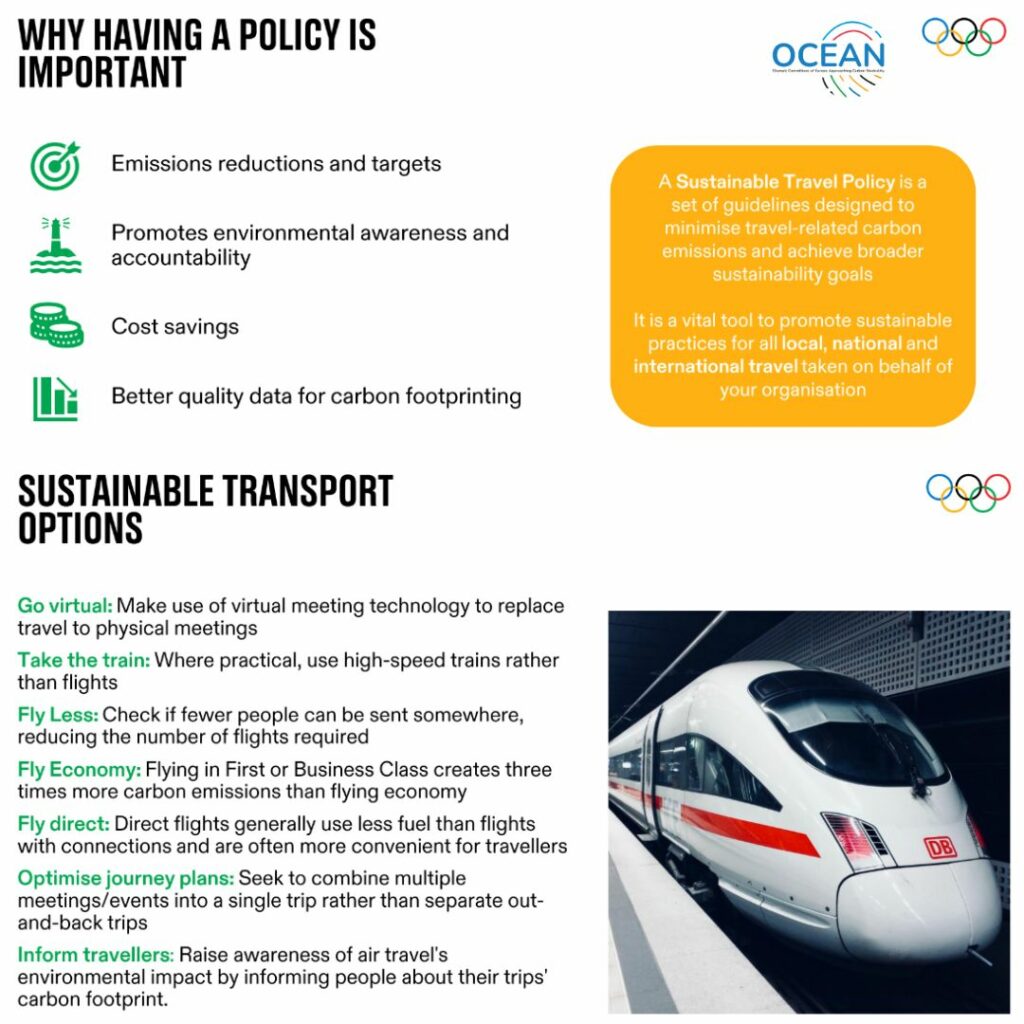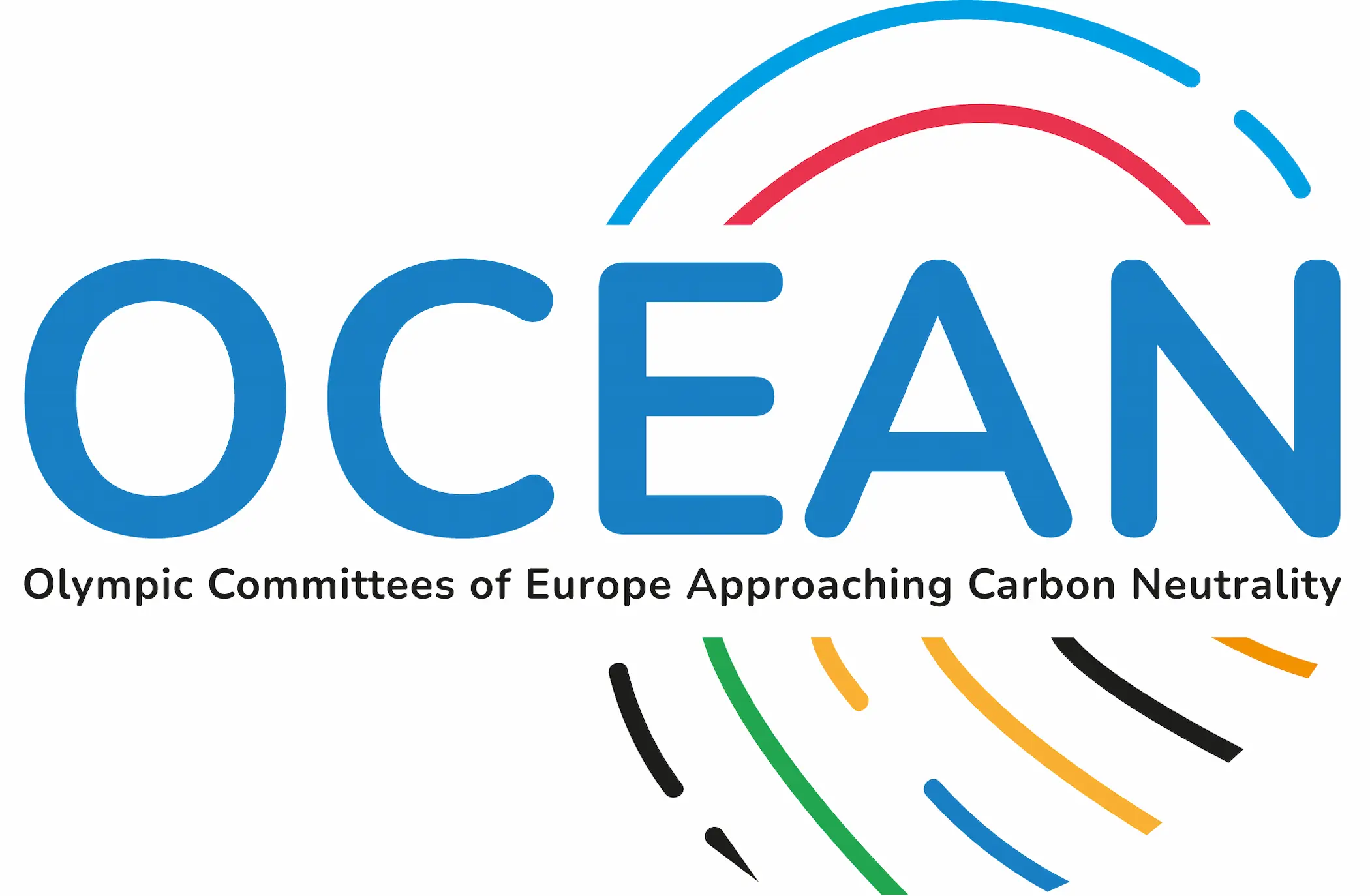On 17 September, the OCEAN Consortium gathered for the second Peer-to-Peer roundtable on their carbon footprint reduction strategies, followed by Module 4 of the Training Course, with sessions taking place on 19, 23 and 24 September.
On 17 September, the OCEAN Consortium convened online for the second Peer-to-Peer roundtable. Once again, the session proved to provide a valuable platform for Climate Action Officers to exchange ideas and gather peer feedback. It commenced with an overview of NOCs’ state progress in drafting their carbon footprint reduction strategies, followed by the presentation from 6 Climate Action Officers (from NOC Czech Republic, France, Luxembourg, Bosnia and Herzegovina, Belgium and Romania). The roundtable highlighted common challenges faced by NOCs, primarily related to transport, events, procurement and the energy consumption of their facilities. Another widely shared concern was the challenge of persuading leadership and colleagues of the importance of sustainable actions and motivating them to implement behavioural changes to effectively reduce their carbon footprint.
Module 4 of the Training Course, delivered in a three-session format, addressed two of the most critical challenges identified by Climate Action Officers during the Peer-to-Peer Roundtable, focusing on sustainable transport and procurement policies.
The first two sessions, held on 19 and 23 September, delved into sustainable transport policy. These sessions featured presentations on key initiatives undertaken by the International Olympic Committee (IOC) and NOC Denmark aimed at implementing efficient travel policies, followed by an inspiring presentation from the International Biathlon Union (IBU) on their transport policy implementation. These insights helped Climate Action Officers gain a clear understanding of the essential steps required to establish a transport policy, including the identification of key stakeholders and the formulation of guiding principles. Through individual and group reflection, they also identified practical measures to reduce transport-related emissions without disrupting the operations of their NOC. Alongside discussions on travel policies, participants were introduced to Sustainable Aviation Fuels (SAF), with an in-depth analysis of the significant challenges that must be addressed for SAF to become a viable sustainable alternative in aviation. The complexity of transitioning to SAF underlined the importance of even the smallest actions taken in the present moment in contributing to the reduction of the carbon footprint.
On 24 September, the focus shifted towards sustainable procurement policy. An insightful presentation by Ben Barrett, sustainability consultant, revealed positive social, ethical and economic outcomes of sustainable procurement sourcing. Through workshops, Climate Action Officers were provided with the tools and frameworks necessary to design an effective procurement strategy, with an emphasis on establishing guiding principles aligned with their sustainability goals.
NOCs are now expected to continue developing their carbon reduction strategies, with adoption scheduled for Spring 2025. The Consortium’s collaborative efforts will resume in November with the next Peer-to-Peer Roundtable, concluding 2024 with the second Project Meeting and Module 5 of the Training Course in Prague.




